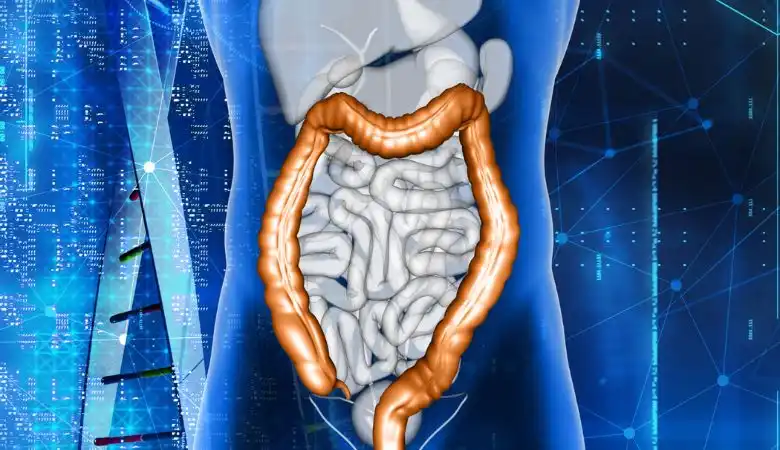Common Signs of Digestive Disorders and When to See a Doctor

The digestive system has a very important role in keeping our bodies healthy as well as energized. It breaks down food, which helps in nutrient absorption, eliminates waste, and supports almost every function of our daily life. However, most of us overlook digestive health, disregarding warning signs like bloating, heartburn, or altered bowel habits until they become a big concern.
According to the World Gastroenterology Organisation nearly 40% of people worldwide live with functional gastrointestinal disorders such as irritable bowel syndrome (IBS) or chronic constipation. Though some symptoms may seem minor but chronic issues may indicate certain health disorders. Early treatment by a gastro doctor in Patna is necessary to help enhance your digestive health. This blog discusses the most typical symptoms of digestive disorders and when it is necessary to seek medical help.
Why Digestive Health Should Not Be Ignored?
The gut is many times called the “second brain” of your body because it is so deeply connected with immunity, metabolism, and even mood. Poor digestion can upset your stomach but it can also destroy energy, nutrient uptake and general health in the long run.
Skipping symptoms of digestive disorder leads to more severe complications. For example:
- GERD, when left unchecked, can destroy the esophagus.
- Chronic IBS symptoms can substantially affect the quality of life.
- Late colon cancer diagnosis reduces the success rate in treatment.
In short, listening to your gut is a guarantee of good health.
General Digestive Disorders Symptoms
Stomach and digestion issues might take place gradually or with prominently visible warning signs. Some of the warning signs listed below should by no means be disregarded:

1. Frequent bloating and excessive gas
Intermittent postprandial bloating is harmless but recurrent gas and bloating can be an indication to lactose intolerance, gluten intolerance (celiac disease), or SIBO. Pain associated with bloating or a change in bowel habit warrants a visit to the gastroenterologist.
2. Chronic Heartburn or Acid Reflux
The most common of the Gastrointestinal symptoms is heartburn. An infrequent acid reflux after spicy food is not a worry, but over two per week may be GERD. GERD, if left untreated, can lead to esophagitis (inflammation of the food pipe), ulcers, or cause cancer of the esophagus.
3. Changes in Bowel Habits
Your bowel habits provide a reflection of your gut health. Some of the red flags are:
- Chronic diarrhea: It may be a sign of infection, IBD, or malabsorption.
- Chronic constipation: It is associated with low fiber intake diet, IBS, or thyroid disorder.
- Alternating diarrhea and constipation: These are one of the symptoms associated with IBS.
Unexplained bowel habits cannot be excluded.
4. Blood in Stool or Vomit
The most critical indication of gastrointestinal disease is visible bleeding. Red bleeding could be a presentation of hemorrhoids, whereas black, tarry stools are indications of upper GI bleeding. Hematemesis or vomit blood is an emergency condition and should be treated as it could be an indication of ulcers, gastritis, or massive gastrointestinal bleeding.
5. Loss of Appetite or Weight Loss
Unintended sudden weight loss is not a good sign. Weight loss can be a reflection of malabsorption (celiac disease, Crohn’s disease), infection, or malignant GI tract tumors. Abdominal pain, nausea, or weakness with anorexia needs to be evaluated promptly.
6. Nausea and Vomiting
Nausea may be a symptom of foodborne illness or infection, yet frequent or persistent vomiting may be indicative of ulcers, gallstones, or disease of the liver. Those conditions that persist for longer than one week must be referred to a physician.
Normal vs. Concerning Digestive Symptoms
Mild digestive discomfort is normal, but remember the distinction between what is “normal” and what might be an indication of a medical condition. The following table is a checklist of some of the most common and concerning GI symptoms:
| Common Symptom | Normal (Occasional) | Concerning (Needs Doctor) |
| Bloating | After heavy/spicy meals | Daily or accompanied by pain |
| Heartburn | Occasionally after overeating | Frequent, interferes with sleep |
| Constipation | Skipping 1–2 days occasionally | Ongoing for 2 weeks, painful stools |
| Diarrhea | After food intolerance | Persistent for more than a week and dehydration |
When to Visit a Gastroenterologist
Regular digestive discomfort can be relieved by diet and lifestyle modifications, still there are some symptoms that need specialist supervision. Consult a gastroenterologist if you have these symptoms:
- Bleeding with vomiting
- Tarry or black stools
- Severe abdominal cramping
- Difficulty in swallowing
- Unintended weight loss
- Constipation or diarrhea that lasts over two weeks
Apart from this, regular checkup like a colonoscopy is recommended to the person above 45 years or sooner if there is a family history of colorectal cancer.
Preventive Measures & Self-Care for Digestive Health
Although the gastrointestinal problem cannot be prevented altogether, healthy habits can quite possibly keep the risk at bay entirely:
- Eat a high-fiber diet with a balanced diet of whole grains, vegetables, and fruits.
- Regular exercise to move your bowels.
- Drink plenty of water, which is an easily digestible liquid
- No indigestion foods, alcohol, or caffeine.
- Quitting smoking because smoking increases acid reflux and ulcer formation.
Conclusion
Most people often ignore gut health until the discomfort becomes unbearable. The clear symptoms that your body shows should never be overlooked and early consultation with a specialist can prevent minor issues from developing into major concerns.
